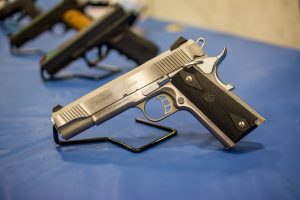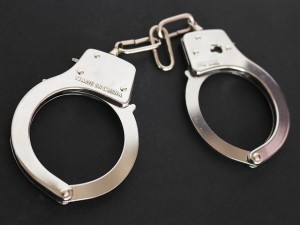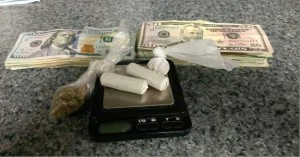 A 20-year-old Washington D.C. man was recently sentenced to five years in federal prison after he pled guilty to theft of firearms from a federal firearms licensee’s facility. This offense is a felony punishable by up to 10 years in prison. The incident occurred back in August of 2019 at a Baltimore County gun store in the Essex area. According to the plea agreement the defendant and a co-conspirator drove up to the gun store in a stolen vehicle, and repeatedly attempted to ram the front door of the shop with the stolen car. The defendant then broke one of the store’s windows, entered and then proceeded to throw stolen firearms to the co-conspirator waiting outside. The two fled the scene and were not apprehended immediately. Shortly after the burglary the defendant posted on social media about the heist, and was not shy about showing off the stolen guns, gloves and mask he wore. Law enforcement officers were able to match the social medial video with the store surveillance video, and were aided by distinctive tattoos on the defendant’s forearm. The social medial videos also showed strings tied around the triggers of the weapons, which the store had used for identification.
A 20-year-old Washington D.C. man was recently sentenced to five years in federal prison after he pled guilty to theft of firearms from a federal firearms licensee’s facility. This offense is a felony punishable by up to 10 years in prison. The incident occurred back in August of 2019 at a Baltimore County gun store in the Essex area. According to the plea agreement the defendant and a co-conspirator drove up to the gun store in a stolen vehicle, and repeatedly attempted to ram the front door of the shop with the stolen car. The defendant then broke one of the store’s windows, entered and then proceeded to throw stolen firearms to the co-conspirator waiting outside. The two fled the scene and were not apprehended immediately. Shortly after the burglary the defendant posted on social media about the heist, and was not shy about showing off the stolen guns, gloves and mask he wore. Law enforcement officers were able to match the social medial video with the store surveillance video, and were aided by distinctive tattoos on the defendant’s forearm. The social medial videos also showed strings tied around the triggers of the weapons, which the store had used for identification.
As if the police needed more evidence of the defendant’s guilt, it turns out that he was also on GPS monitoring for a Prince George’s County case when he carried out the burglary. The defendant was charged with armed robbery in 2018 and eventually pled guilty to conspiracy to commit robbery ( a misdemeanor common law offense in Maryland). He was likely being supervised by parole and probation at the time, as he just pled guilty in May of 2019. There is currently an active warrant out of the Prince George’s County Circuit Court for a violation of probation, though it is unclear how many years the defendant is backing up.
This case is another example of the feds picking up what would normally be a state case. Much like bank robbery cases, the feds will typically get involved when gun shops are burglarized, as all arms dealers must be licensed by the federal government and the ATF in particular. In this case, the defendant was also charged with second-degree burglary, felony theft and malicious destruction of property in the Baltimore County District Court. An arrest warrant was issued back in 2019 and it appears the warrant remains unserved. If Baltimore County chooses to prosecute the defendant will be transported to Towson upon completion of his federal sentence. This of course is assuming that he is not taken to Prince George’s County first. It will be interesting to see if Baltimore County chooses to prosecute a defendant that has been sentenced for the same act in federal court, and then punished for violating his probation due to that act in another county. The Blog will follow and may post an article in the future. In the meantime, stay tuned for any new posts regarding gun and drug charges that are filed in federal court.
 Criminal Defense Lawyer Blog
Criminal Defense Lawyer Blog










